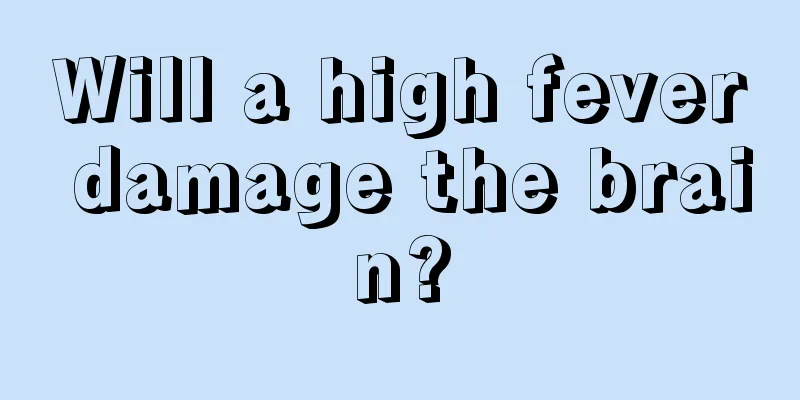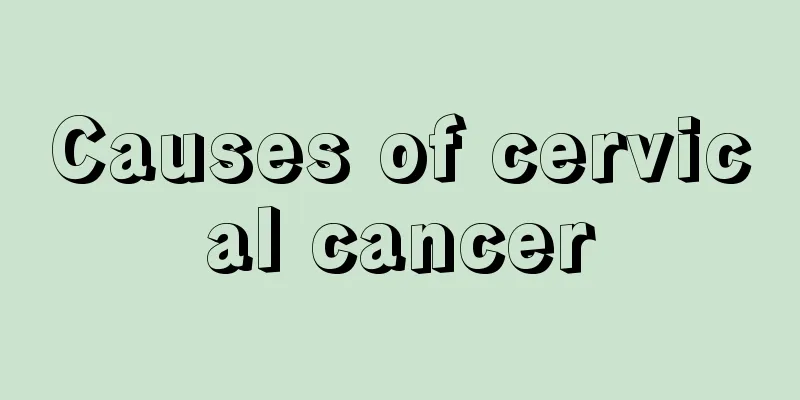Will a high fever damage the brain?

|
We often hear that high fever can damage the brain. In fact, this statement is not an exaggeration. Especially when a high fever occurs, it will cause many adverse effects on health. However, it does not mean that all high fevers may affect intelligence and cause encephalitis or meningitis. Generally, encephalitis and meningitis are mainly caused by some virus damage, which damages the intelligence or sensory function. However, no matter what causes the fever, you must pay attention to correct treatment. 1. Fever will not "burn the brain". The reason why parents immediately go crazy when the baby has a fever is nothing more than a traditional concept that a fever will damage the child's brain. A high fever itself will not cause "brain deterioration and intelligence decline". Such misunderstandings existed in the past because medical knowledge was not yet popularized and the causes behind high fever were not clearly distinguished. In fact, only diseases such as encephalitis and meningitis where the brain itself is damaged by viruses will harm intelligence or sensory functions, rather than fever making people stupid or deaf. 2. The temperature control center of infants and young children is not as stable as that of adults. Even a mild viral infection may cause a fever as high as 40°C. Parents only need to know how to deal with the fever. As for the diagnosis of the cause, it should be left to a professional doctor and there is no need to worry too much. According to statistics, no matter what the cause of the fever is, the body temperature rarely exceeds 41°C. If it exceeds this temperature, the possibility of suffering from bacterial meningitis or sepsis is relatively high, and you should be particularly vigilant. 3. As for the high temperature limit that brain cells can tolerate, it may have to reach 41.7°C before the cell proteins will deteriorate due to high temperature and cause irreversible damage. This extreme high temperature is rarely accompanied by disease. Clinically, the only high temperature that can be reached is an allergy to anesthesia, which causes a malignant fever. 4. Because fever itself will not harm children, whether it is necessary to reduce fever has long been controversial. Scholars who advocate that fever should not be reduced believe that fever is a normal immune response that helps white blood cells fight bacteria. Analyzing the pattern of fever can help diagnose the cause, while simply reducing fever can be misleading. However, most doctors and scholars support moderate fever reduction. Because fever increases metabolism and causes internal consumption, patients will suffer from headaches, fatigue, rapid heartbeat, and feel very uncomfortable. Infants and young children are prone to dehydration, and fever causes water evaporation, which is a vicious cycle. Infants and young children have a higher incidence of febrile convulsions. It is unnecessary to allow fever and cause harm. |
<<: How to remove moles without leaving scars
Recommend
Will drinking egg tea for breakfast make you fat
The so-called egg tea actually means beating an e...
How to control emotional excitement
Many people have emotional moments in life, but s...
What are the complications after cerebral hemorrhage surgery?
In daily life, cerebral hemorrhage is a very comm...
What are the advantages and disadvantages of using mugwort leaves as pillows
One third of a person's life is spent in bed,...
How to check for renal hamartoma
How to check for renal hamartoma? Although renal ...
What varieties of black tea are there_What varieties of black tea are there
There are many types of tea, the most common ones...
What should liver cancer patients pay attention to in their diet? Here are some dietary principles for liver cancer patients
1Dietary principles: (1) Since liver cancer consu...
What are the correct ways to wear underwear?
Underwear is a very private item for us. Women li...
Can you get pregnant with endometrial cancer?
Can you get pregnant with endometrial cancer? Man...
Is hepatitis C hereditary?
Hepatitis C does not actually have any genetic pr...
How much sleep does a 14 month old baby need?
A 14-month-old baby is already over one year old....
Causes of nodular thyroid cysts
Nodular thyroid cyst is a very common disease. Th...
4 tips for wearing high heels correctly
High heels are a trend in modern society. They ca...
Four foods that help prevent colorectal cancer
Due to changes in dietary structure and bad eatin...
What is the cause of gum atrophy
Gum atrophy is a very common condition and there ...









